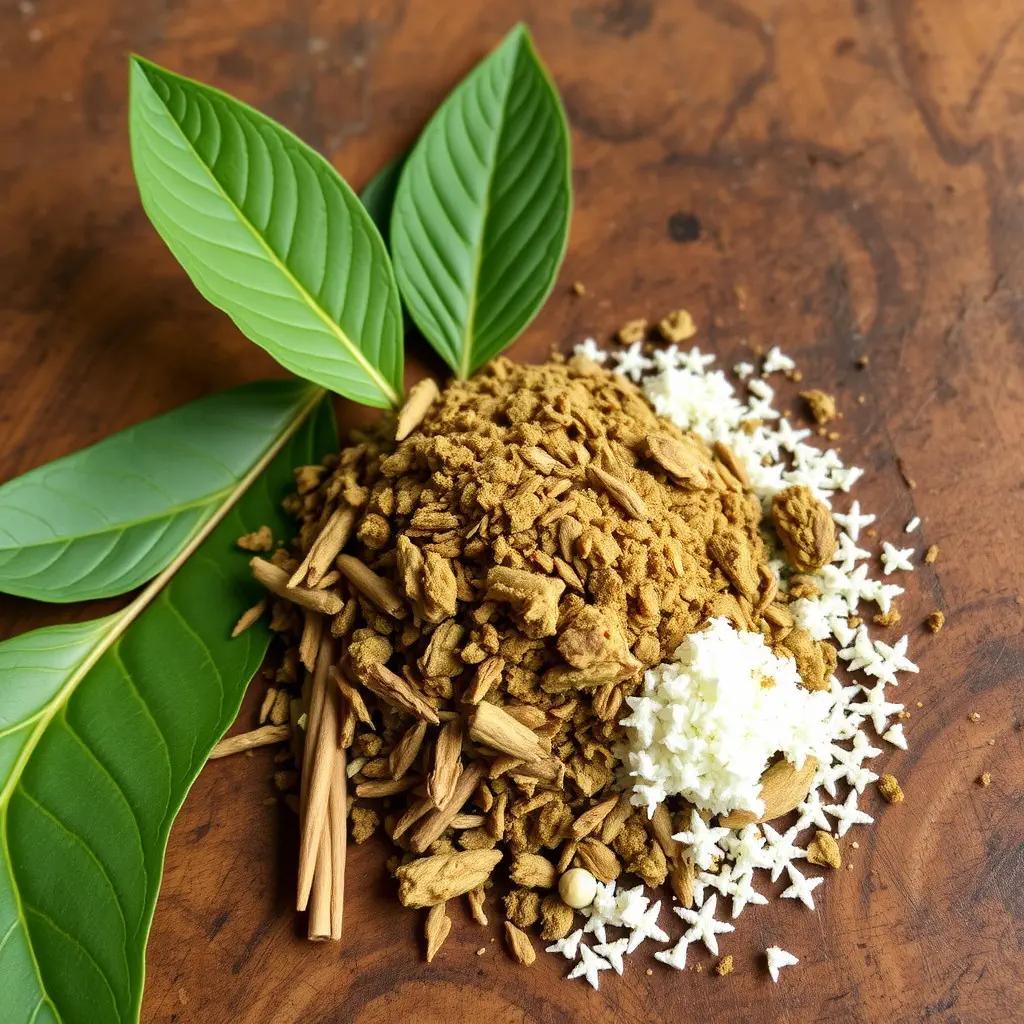Indiana has established a comprehensive framework regulating kratom through its Kratom Consumer Protection Act, which mandates strict adherence to Good Manufacturing Practices and labeling of mitragynine content. This legislation, aimed at ensuring public health and safety, positions Indiana as a leader in the regulation of kratom use. The law requires consumers considering kratom for inflammation management to consult healthcare professionals and stay informed on local regulations due to varying county laws within the state. It is crucial for users to purchase from reputable sources to comply with labeling standards and to be mindful of potential interactions with other medications. Indiana's approach underscores a commitment to consumer protection and public health, advocating for responsible use of kratom while emphasizing the importance of understanding both the therapeutic and legal implications of using this supplement.
Investigating the potential of kratom supplements for inflammation reduction, this article delves into the science behind kratom’s properties and provides a comprehensive guide on its legal status, particularly in Indiana. With a clear understanding of how kratom fits into health maintenance, readers can learn to integrate it into their wellness routine safely and effectively, all while staying informed about the evolving legal landscape governing its use.
- Understanding Kratom and Its Role in Inflammation Reduction
- The Legal Landscape of Kratom Use: Indiana Kratom Law Explained
- Integrating Kratom Supplements into Your Health Regimen Safely and Effectively
Understanding Kratom and Its Role in Inflammation Reduction

Kratom, a plant native to Southeast Asia, has gained attention in various health discussions, including its potential role in inflammation reduction. The primary active components in kratom are alkaloids named mitragynine and 7-hydroxymitragynine, which have been the subject of scientific investigation for their anti-inflammatory properties. Studies suggest that these compounds may modulate cytokine production, a key factor in the body’s inflammatory response. This regulatory action could potentially alleviate symptoms associated with inflammation-related conditions without the side effects commonly seen with traditional anti-inflammatory medications.
In the context of legal considerations, it’s pertinent to note the regulatory stance on kratom in specific regions, such as Indiana. The state of Indiana has a nuanced approach towards kratom, with legislation that requires careful attention from consumers and healthcare providers alike. As per the current Indiana kratom law, kratom is legal but subject to strict purity standards and vendor requirements. This legislative framework ensures that kratom products available for purchase meet certain quality controls, which is crucial for consumer safety. Users interested in incorporating kratom into their wellness regimen for inflammation reduction should first consult with healthcare professionals and stay informed on the evolving legal landscape surrounding this natural supplement.
The Legal Landscape of Kratom Use: Indiana Kratom Law Explained

Kratom, a botanical derived from the leaves of Mitragyna speciosa, has garnered attention for its purported effects on inflammation reduction and overall well-being. As with any supplement, the legal status of kratom varies across different states in the United States. In Indiana, the legal landscape regarding kratom is defined by specific legislation that both regulates and permits its use. The Indiana State Legislature passed a bill, which was signed into law in 2019, that effectively removed an earlier ban on kratom. This new legislation placed kratom in the same category as other dietary supplements, allowing for its legal sale within state borders while also implementing regulations to ensure consumer safety. The Indiana Kratom Consumer Protection Act mandates strict adherence to Good Manufacturing Practices (GMP) and requires labeling that includes the quantity of mitragynine per serving. This legislative approach reflects a balance between consumer access and the need for oversight to protect public health, positioning Indiana as one of the states with a clear and regulated stance on kratom use.
Consumers in Indiana interested in utilizing kratom supplements for inflammation reduction should first consult with healthcare professionals, given the potential interactions with other medications and the importance of dosage considerations. It’s also crucial to purchase products from reputable vendors who adhere to the state’s labeling requirements, ensuring transparency and safety. The Indiana kratom law is a testament to the state’s commitment to consumer protection and public health, providing a clear framework for the responsible use of kratom while maintaining a vigilant eye on its effects and long-term implications.
Integrating Kratom Supplements into Your Health Regimen Safely and Effectively

When considering the integration of kratom supplements into your health regimen for inflammation reduction, it is imperative to adhere to safety and effectiveness guidelines. Kratom, derived from the leaves of the Mitragyna speciosa tree, has garnered attention for its potential anti-inflammatory properties. Users in Indiana, where the legal status varies by county, should first familiarize themselves with the specific kratom laws governing their area. As of the knowledge cutoff date, the state of Indiana places kratom in a gray area, with some counties banning its sale while others allow it. This variability underscores the importance of staying informed on local legislation before purchasing or using kratom products.
Before incorporating kratom supplements into your routine, consult with a healthcare provider to discuss potential interactions with medications you are currently taking and to assess whether kratom is an appropriate addition to your health regimen. It is also crucial to start with a low dosage to gauge how your body responds to kratom’s effects. Monitoring your well-being and adjusting your intake accordingly can help maintain the balance between achieving therapeutic benefits and avoiding adverse reactions. Additionally, sourcing high-quality, lab-tested kratom from reputable vendors is essential for both safety and efficacy. By following these steps, you can explore the potential anti-inflammatory effects of kratom supplements in a manner that respects local regulations and prioritizes your health.
In conclusion, kratom supplements present a promising avenue for individuals seeking natural inflammation reduction. Understanding the nuances of how kratom interacts with the body, as detailed in “Understanding Kratom and Its Role in Inflammation Reduction,” is crucial. However, it’s equally important to navigate the legal landscape governing its use, as outlined in “The Legal Landscape of Kratom Use: Indiana Kratom Law Explained.” To integrate kratom into a health regimen safely and effectively, as described in “Integrating Kratom Supplements into Your Health Regimen Safely and Effectively,” one must adhere to the guidelines and regulations set forth by authorities. In Indiana, these legal parameters are particularly significant for responsible use. Prospective users should consult healthcare professionals before beginning any new supplement regimen, considering the potential benefits and risks associated with kratom. With a balanced approach that combines scientific understanding, legal awareness, and professional medical advice, kratom may serve as a valuable tool in managing inflammation, provided it’s used within appropriate frameworks.






